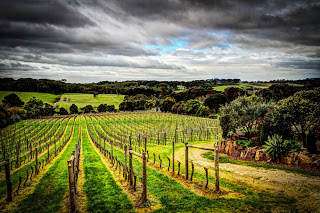

| Online: | |
| Visits: | |
| Stories: |

| Story Views | |
| Now: | |
| Last Hour: | |
| Last 24 Hours: | |
| Total: | |
New Insights on Organic and Non-Organic Crops: USDA Data Show Organics Average 67% of Yield of Non-organics | Terry Daynard's Blog
Tuesday, September 6, 2016 16:18
% of readers think this story is Fact. Add your two cents.
Terry Daynard wraps recent crop yield discussions up with a blog commentary:
…Many in organic production/marketing/advocacy portray organic as morally superior and more sustainable, not withstanding some small reductions in yield. Others (example here) argue the reverse: that organic agriculture is bad ethically because of markedly lower yields and the attendant major increase in land needed to produce food.
There is more to sustainable agriculture than yield. Quality is important and so too are the long-term adequacy of input needs, energy usage and effects on environment. Organic may or may not be environmentally superior; it depends on which analysis, commentary or assumptions you read or use. But yield is highly important too.
Thus it was with pleasure that I read a quality analysis published in August 2016, by Drs. Kniss and Jabbour at the University of Wyoming and Dr. Savage in San Diego. It’s entitled, “Commercial Crop Yields Reveal Strengths and Weaknesses for Organic Agriculture in the United States.” A popularized column based on the paper was published simultaneously by Kniss. The strength of the paper is that, unlike any before, it is based on many thousands of actual on-farm records. The paper involves data only from the United States but it’s a major contribution and you must read it – ideally both the paper and column…
The Pundit's view:
Better put as saying #organic land and environmental footprints are 50 percent bigger than non-organic, other thing being equal?
Source: http://gmopundit.blogspot.com/2016/09/new-insights-on-organic-and-non-organic.html



